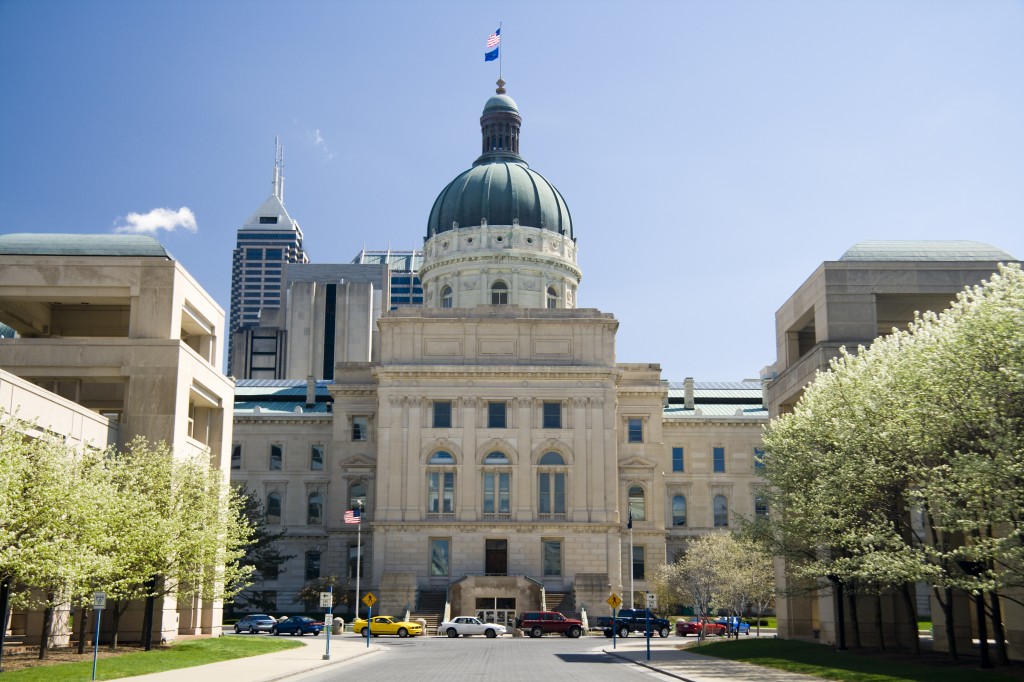
More state RFRAs and other approaches
(by Chelsea Langston)
It is odd: remember the media and social-media backlash as Indiana was adopting its Religious Freedom Restoration Act (March-April 2015)–and yet 19 other states already had RFRAs! Why so little outrage, past and present, in those other states?
Missouri, for instance, has had a state RFRA since 2003, a bill signed into law by a Democratic governor. Why no concern in the state about religious companies refusing to serve gay customers? An article in Missouri Lawyers Weekly provides the answer: “. . . RFRAs in the other 19 states and the federal government have been around for some time and the feared discrimination has never materialized. Indeed, there have been no cases of restaurants or retail stores that have been sued for LGBT discrimination that have sought to defend their discrimination as religiously protected conduct under RFRA.”
It is this reality–RFRA does not give a blank check to discriminate–that explains what happened in Arkansas shortly after all of the controversy in Indiana. Governor Asa Hutchinson asked the legislature to amend the language of the proposed Arkansas RFRA to more closely align with the federal Religious Freedom Restoration Act. Almost immediately the bill won both Republican and Democratic co-sponsors.
Kathy Webb, the first openly gay person to run for and to be elected to public office in Arkansas said of the amended RFRA, it is a “very bipartisan effort, we have a starting place form which to move forward.” Like the federal RFRA, the amended Arkansas RFRA has no language prohibiting discrimination on the basis of sexual orientation or gender identity, and no language automatically immunizing such discrimination if a religious motivation is given. Still, without much opposition, Governor Hutchinson signed the amended RFRA into law. These laws are not about authorizing religious people and organizations to mistreat LGBT people.
Are there circumstances when a religious person or organization should be able to oppose a same-sex marriage? Louisiana is in the middle of a debate about that. The state’s H.B. 707, the “Marriage and Conscience Act,” would prohibit the Louisiana government from taking “adverse action” against anyone for opposing same-sex marriage for a religious reason. “The Louisiana bill really does what people accused the Indiana law of doing,” religious freedom legal scholar Doug Laycock told MSNBC.
The Indiana RFRA, before it was amended and signed into law, offered, as does the federal and the other state RFRAs, religious people and organizations a day in court if they are sure that their religious exercise has wrongly been burdened by government. It is possible, although it has never happened yet, that a court would rule that in the specific instance of a same-sex wedding or reception, the government may not enforce its prohibition of discrimination on the basis of sexual orientation. Louisiana goes far beyond this, stating in the text of the bill that a religious person’s convictions about marriage will always authorize them not to go along with an LGBT marriage.
When multiple services are available, or when the requested service is a matter of aiding in a marriage ceremony or celebration, legislatures are right to seek to accommodate both the rights of the LGBT person or couple and the religious freedom of dissenting persons and organizations. Does the Louisiana bill draw the appropriate lines? That’s an important legal question.
There is also an important policy question to consider at this time of heightened concern on all sides about freedom and equality. When a state acts to protect religious freedom but has not acted to protect LGBT people against invidious discrimination, a particular signal is sent about rights and freedoms. It may be, as various scholars and religious freedom advocates say, that equating LGBT discrimination with racial and sex discrimination puts into the law a mistaken view of LGBT, and racial, and sex discrimination. Yet, lacking an alternative way to protect against LGBT discrimination, not acting at all sends a negative signal. What then is to be done?
As the controversy swirled around the Indiana RFRA, Michigan Governor Snyder spoke up about a proposed Michigan RFRA, telling reporters, in the words of the Detroit Free Press, that he would not sign a RFRA bill “without an accompanying bill that would expand the state’s Elliott Larsen Civil Rights Act, which prohibits discrimination in housing and hiring, to the LGBT community.”
In short: we can solidify religious freedom protections if at the same time we act against invidious discrimination against LGBT people. This is similar to the approach adopted in Utah. It is a way to address the concerns of LGBT people that RFRA laws will permanently subjugate them while also addressing the concerns of religious communities that LGBT protections will necessarily require them to act against their religious convictions.
Is such a win-win, rather than winner-takes-all, approach a perfect solution and one that will satisfy everyone? Probably not. But is it a realistic and pragmatic approach that allows people and organizations of faith a chance to preserve their sincerely held beliefs while extending justice and compassion toward another legally vulnerable population? Quite possibly.
